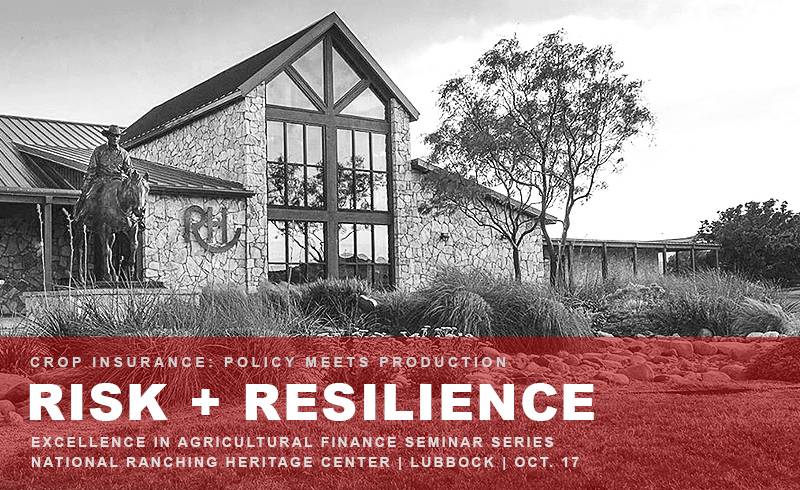
Few tools shape the nation’s agriculture as deeply as crop insurance, a government-subsidized safety net designed to protect farmers from the effects of weather and markets. This momth Texas Tech’s Department of Agricultural & Applied Economics hosted a daylong seminar in Lubbock to explore how the program influences production decisions, lending practices and the broader stability of the farm economy.

The seminar, part of the department’s Excellence in Agricultural Finance Seminar Series, was held on Friday (Oct. 17) at the National Ranching Heritage Center in Lubbock. Organizers said the event explored crop insurance from multiple vantage points, including coverage and policy options, program integrity and the concerns of agricultural lenders.
Kelly Lange, an associate professor and director of Texas Tech’s Excellence in Agricultural Finance Program, said the seminar was designed to “build a bridge between producers, lenders and agents to improve outcomes for everyone in the system.”
Sessions ran from 9 a.m. to 3 p.m. Among the speakers were Shawn Wade, assistant director of Davis College’s International Center for Agricultural Competitiveness; Rachel Meyers, owner of Meyers Crop Insurance in Claude, Texas; Jay Yates, an agricultural risk analyst with Watts & Associates in Demming, New Mexico; and Jim Bellmon, a director of the regional USDA Risk Management Agency office in Oklahoma City.
“This conference is about understanding the decisions that producers make and the environment in which those decisions occur,” said Darren Hudson, associate dean for strategic initiatives and assessment in Texas Tech’s Davis College of Agricultural Sciences & Natural Resources.
Crop insurance, overseen by the USDA’s Risk Management Agency and administered through private insurers, provides yield- and revenue-based protection to farmers facing losses from weather, disease and market swings. Subsidized premiums make participation widespread, but the program’s complexity often leaves producers and lenders alike weighing difficult trade-offs.
The seminar wassupported by Texas Tech’s International Center for Agricultural Competitiveness and the Thornton Agricultural Finance Institute, both of which focus on research and outreach in farm finance and agricultural policy.
CONTACT: Krishna Paudel, professor and chair, Department of Agricultural & Applied Economics, Texas Tech University at (806) 834-8360 or kripaude@ttu.edu
1017NM25
